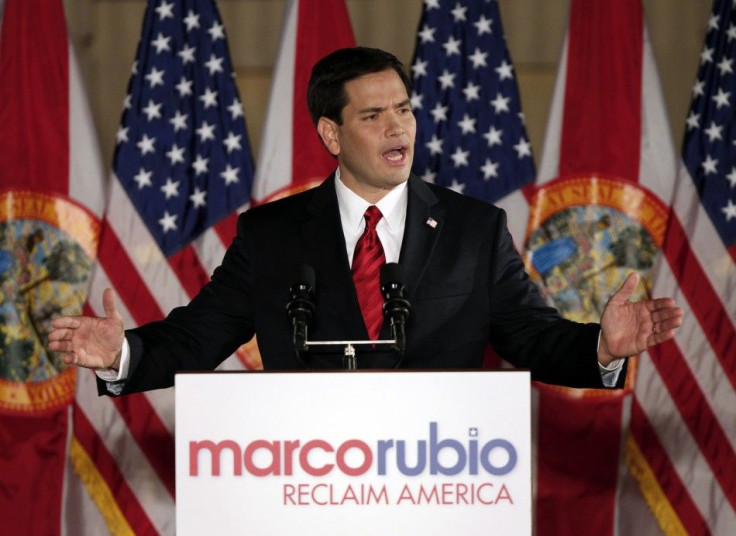Florida Republican Senator Marco Rubio Gets Book Deal

Florida senator Marco Rubio has sealed the deal for a book, which is scheduled for publication next fall.
The untitled book will be published by Sentinel, an imprint of Penguin Group. Rubio thanked Penguin for the opportunity on his Twitter account.
Marco Rubio is one of the brightest rising stars of the Republican Party and will likely be on the national stage for many years to come, Sentinel president Adrian Zackheim said in a statement. Of equal interest is the emotional story of his family's journey to the U.S. from Cuba, their exile experience and how that shaped the Senator's life. This will be a very personal memoir that proves that the American dream is still alive and well for those who work to pursue it.
The book deal is pending a final approval from the Senate Ethics Committee, according to a publisher statement.
The news comes during speculation as to whether Republican presidential hopeful Newt Gingrich will make Rubio his running mate.
He's going to be on everybody's short list, Gingrich said of Rubio to reporters in Florida. He's very talented and very competent. Florida's going to be a very very important state. No Republican could win in 2012 without carrying Florida.
Rubio came under fire in October when The Washington Post said he exaggerated his story of growing up as the son of Cubans who fled Fidel Castro's Cuba. His parents left Cuba in 1956, before Castro came to power.
Rubio defended his story to The Washington Post.
They were from Cuba, he said of his parents. They wanted to live in Cuba again. They tried to live in Cuba again, and the reality of what it was made that impossible.
His biography on his Senate Web site has changed since then. Marco was born in Miami in 1971 to Cuban exiles who first arrived in the United States in 1956, it now reads.
Penguin's statement on the book notes that he is the son of working-class exiles from Cuba.
Rubio slammed his critics in an opinion contribution to Politico. He noted that his parents, like so many Cuban exiles, wanted to return to Cuba but could not because of communism.
If The Washington Post wants to criticize me for getting a few dates wrong, I accept that, he wrote. But to call into question the central and defining event of my parents' young lives - the fact that a brutal communist dictator took control of their homeland and they were never able to return - is something I will not tolerate.
© Copyright IBTimes 2024. All rights reserved.





















